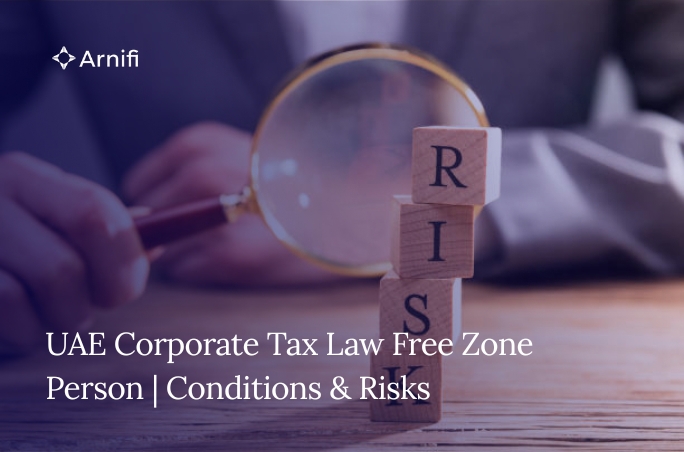Navigating SCA Approvals in Dubai | Steps, Requirements, and Common Mistakes to Avoid
by Rifa S Laskar Nov 24, 2025  8 MIN READ
8 MIN READ

The Securities and Commodities Authority Dubai sits at the centre of onshore capital market regulation in the UAE. It was created under Federal Law No. 4 of 2000 as a public authority with legal personality and supervisory powers over securities markets.
SCA oversees exchanges such as the Abu Dhabi Securities Exchange and the Dubai Financial Market. It sets many rules that listed companies and intermediaries must follow.
Because approvals sit inside that framework, weak preparation can delay a new licence, a product launch or an offering timetable.
This guide sets out who needs SCA approvals in Dubai. Let’s understand key steps in the process and core conditions that apply and common mistakes that push timelines back.
Table of contents
- Why SCA Approvals in dubai Approvals Matter For Firms
- Who Needs SCA Approval In Practice
- Main Steps To Secure SCA Approval
- Core Approval Conditions And Documentation
- How SCA Handles Reviews And Ongoing Supervision
- Common Mistakes That Delay SCA Approvals
- Tracking SCA Licensed Companies And Permissions
- What SCA Certification Means In UAE Context
- Final Advice
- FAQs
Why SCA Approvals in dubai Approvals Matter For Firms
Onshore exchanges like DFM and the Dubai Gold and Commodities Exchange operate under SCA supervision and link their market rules to SCA regulations.
Any firm that wants to act as broker, investment manager or adviser in mainland UAE usually needs SCA authorisation before it can handle public investors. Guidance notes on financial activity licensing show that authorisation depends on activity type, ownership structure and governance strength.
For IPOs and other public offerings, SCA approval of the prospectus and listing is a core condition alongside exchange checks. Recent overviews of the UAE IPO framework confirm that SCA maintains final discretion over many public offering approvals.
When firms misjudge these touchpoints, they face late conditions, extra documentation rounds and sometimes a need to change their legal structure.
Who Needs SCA Approval In Practice
Regulatory guides make clear that SCA is the main onshore market regulator for securities and related financial services.
Approvals usually apply to firms such as:
- Brokers that execute or arrange trades in securities listed on UAE onshore markets.
- Asset or portfolio managers that run collective investment schemes or manage client portfolios on a discretionary basis.
- Financial advisers that recommend or market securities to retail or professional clients in mainland UAE.
- Market members that wish to trade derivatives or other regulated contracts on DGCX or similar venues.
This landscape matters for groups that run several licences. Central Bank, insurance and free zone regulators handle separate areas. Yet SCA covers onshore securities activity.
Main Steps To Secure SCA Approval
Getting SCA Approvals in Dubai usually follows a clear sequence, even if detail shifts by licence type.
- Define the planned activities and map them to SCA licence categories under the consolidated Rulebook for financial activities.
- Choose the legal form and capital level that match those categories. Then align ownership charts to meet control requirements.
- Identify senior managers and board members that will hold approved functions and ensure each meets fit and proper tests.
- Prepare and file a complete application pack, including business plan, compliance framework, policies and financial projections.
The 2021 Rulebook introduced a one year grace period for existing firms to migrate licences and applies in full to new applications.
Core Approval Conditions And Documentation
Supervisory expectations under SCA Dubai rules focus on three clusters: governance, capital strength and systems. Industry summaries of the Rulebook and recent corporate governance updates highlight these themes.
Key elements the file must show include:
- A board and management team that meets SCA governance code standards on independence and competence for listed or listing vehicles.
- Internal control and risk management frameworks are strong enough to support reliable reporting and investor protection.
- Capital that satisfies minimum requirements for the chosen licence type, as set in SCA financial resources rules and exchange membership criteria.
- Clear policies on conflicts, disclosure and client asset segregation so investors receive fair treatment.
How SCA Handles Reviews And Ongoing Supervision
Once an application is filed, SCA reviews the pack, asks follow up questions and coordinates with exchanges or other regulators where needed. Public notes on the Rulebook and enforcement updates show that SCA can impose conditions, restrict activities or refuse licences if standards are not met.
After approval, firms fall under ongoing supervision. Market rules confirm that exchanges link their own requirements directly to SCA rules and monitor members for compliance.
Listed companies must also comply with the UAE Corporate Governance Code. SCA updates it periodically to strengthen risk management and internal control expectations.
Failure in these areas can lead to fines, director restrictions or trading suspensions. That is why early design of governance and reporting matters as much as the licence itself.
Common Mistakes That Delay SCA Approvals
Advisory notes on the new Rulebook and market experience show a pattern of recurring issues for applicants.
Typical mistakes include:
- Submitting a licence application before internal governance and control frameworks are fully designed or staffed.
- Underestimating how SCA views cross border business that touches mainland clients through remote marketing or online channels.
- Treating the corporate governance code as a listed company topic only, instead of building many of those controls into pre listing structures.
- Ignoring updates on virtual asset and fintech guidance when products have digital or token components.
Tracking SCA Licensed Companies And Permissions
Investors and counterparties often want to confirm that a firm sits in the list of SCA licensed companies before they sign mandates. Specialist compliance providers and advisory firms regularly point to SCA’s role as the licensing authority for investment companies and brokerage houses active in mainland UAE.
Exchanges such as DGCX publish membership requirements. These explicitly include a valid SCA licence along with minimum staffing and financial resource thresholds.
IPO and listing guides further confirm that SCA licenses and supervises exchanges themselves, not only intermediaries.
For due diligence, firms should check both SCA registers and exchange membership lists to verify licence scope and any trading permissions in place.
What SCA Certification Means In UAE Context
Many market participants refer to SCA certification UAE when they speak about approvals granted to individuals or firms after fit and proper tests.
Official rulebook sections on licensing of financial activities describe approval of key jobs and testing of competence and integrity.
In practice, this may include exams, background checks, and requirements for continuous professional development. These expectations are sometimes aligned with global standards like those used by CISI.
Industry commentary on the updated regime notes that the handbook consolidates rules for dozens of existing SCA registered financial services firms and their approved persons.
For boards, this means approvals are not a one time event. They must keep skills current, track rule changes and refresh training so authorised staff stay aligned with SCA expectations.
Final Advice
Approvals under SCA shape how a firm is supervised in Dubai’s onshore markets, so planning starts with clear activity mapping, strong governance, and honest timelines for each step.
When the licence sits at the centre of the business model instead of as last-minute paperwork, reviews tend to bring fewer surprises and calmer discussions with regulators and exchanges.
Arnifi helps design that roadmap so approvals support growth, not stress over time.
FAQs
What is the main role of SCA in UAE capital markets?
SCA is the federal regulator for securities and commodities markets in the UAE. It was created under Federal Law No. 4 of 2000. It has oversight over exchanges such as ADX and DFM and the companies listed there.
Do all financial firms in Dubai need SCA approval?
No. SCA focuses on securities and related financial activities in the mainland UAE. Banks and many payment services fall under the Central Bank rulebook, while DIFC and ADGM have separate regulators. Firms must map each activity to the correct authority before applying.
How has the SCA Rulebook changed licensing expectations?
The 2021 consolidated Rulebook brought financial activity rules into one framework and gave existing firms a one year grace period to upgrade licences. New applicants must comply with the updated categories and conditions immediately.
What governance standards apply to SCA supervised companies?
Public joint stock companies and many listing candidates must follow the UAE Corporate Governance Code issued by SCA. Recent amendments increased focus on board independence, internal control systems and risk management across listed entities.
Where can I see more information on SCA guidance and updates?
SCA publishes regulations, circulars and guidance on its official website and through public announcements. The UAE government portal on financial markets and major advisory firm summaries also track key changes to the Rulebook and corporate governance codes
Top UAE Packages

Related Articles
Top UAE Packages



